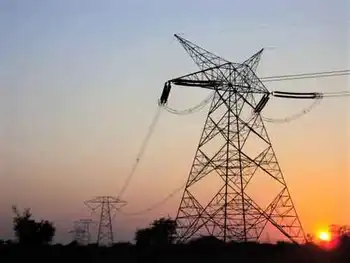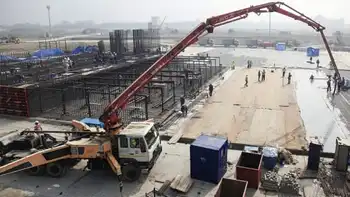Saudis analyze bids for Riyadh power project
RIYADH, SAUDI ARABIA - In December 2009, state-run electricity generation, transmission and distribution company Saudi Electricity Company (SEC) received bids from five international consortiums to build, own and operate a 2,000-megawatt (MW) power plant in the capital city of Riyadh.
SEC had initiated the international bidding process for the project in July 2009, and bidding was closed in December 2009. SEC will now make a detailed study of the technical and legal aspects of all the bids, and a power purchase agreement (PPA) is expected to be signed in March 2010. Under the PPA, the selected consortium will purchase all the power generated for a period of 20 years.
The combined cycle gas turbine (CCGT) power plant, known as PP II, will be developed in two phases and, when completed, is expected to enhance the power supply of Riyadh. The project will be the eleventh power plant in Riyadh. The waste heat generated by a CCGT plant is used to create steam, which is used to generate additional electricity from a steam turbine. Fuel efficiency is thus effectively increased. The first phase of the plant is scheduled to begin operations in the summer of 2013.
While the project's cost was estimated at $3.2 billion in July last year, the estimate was lowered in October, and costs are now expected to range between $2 billion and $2.5 billion. The funds are expected to be shared equally by SEC and the private sector.
The lowest bid has been proposed by a three-member consortium led by trading company Marubeni Corporation. The other members of the consortium are electricity company Kansai Electric Power Company and Saudi Masader Company for Power, Water and Gas. The group has proposed a levelized electricity cost of $0.02 per kilowatt-hour (kWh), which includes the cost of fuel, operations, production, and financing.
The consortium formed by natural gas and electricity supplier GDF Suez SA and trading company Al Jomaih Group has made an offer of $0.029 per kWh. The diversified company Sumitomo Corporation, along with construction company Saudi Binladin Group and electricity company Tenaga Nasional Berhad, has made an offer of $0.03 per kWh.
Trading company Mitsubishi Corporation, Tokyo Electric Power Company Incorporated and Arabian Company for Water and Power Development have jointly submitted an offer of $0.032 per kWh. The highest offer has been made by the consortium formed by electricity company International Power plc, utility company Korea Electric Power Corporation, and construction company Saudi Oger Limited, with an offer of $0.035 per kWh.
The project is part of Saudi Arabia's $20 billion plan to increase the nation's power generation capacity by at least 10,000 MW by setting up six independent power producer (IPP) projects in the next three years. SEC's plans also include an investment of $80 billion to ramp up the nation's power generation capacity by about 20,000 MW by 2018.
The company's current installed capacity is about 40,000 MW.
Referring to the Riyadh IPP in July last year, Amr Aswaha, head of projects for IPPs, said, "We expect an award by the end of March and a financial close in May."
Related News

Massive power line will send Canadian hydropower to New York
NEW YORK - A proposal to build a new transmission line to connect New England with Canadian hydropower is one step closer to reality.
The U.S. Department of Energy announced Monday that it has selected the Twin States Clean Energy Link as one of three transmission projects that will be part of its $1.3 billion investment to add capacity to the grid.
WBUR is a nonprofit news organization. Our coverage relies on your financial support. If you value articles like the one you're reading right now, give today.
Twin States is a proposal from National Grid, a utility company that serves Massachusetts, New…




